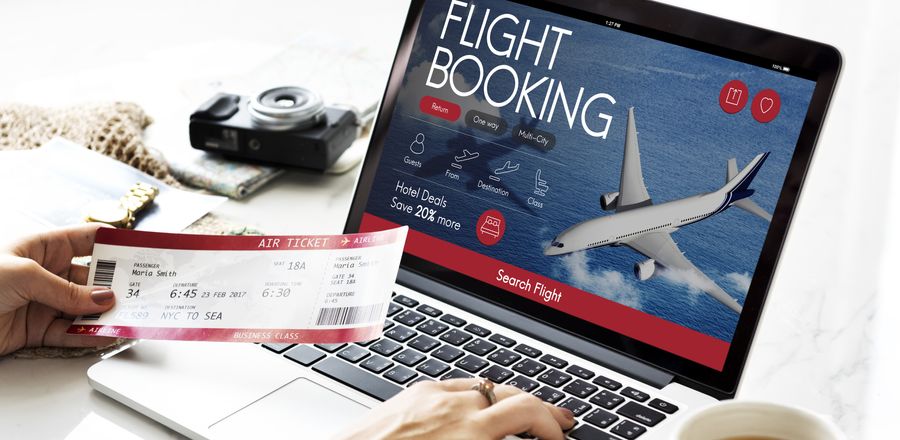With a sudden surge in the corporate space, business travel has grown rapidly over the years. Further, future projections of corporate travel look extremely promising. Thus, most companies are seeking better ways to manage their employees’ corporate travel and opting for 6 phases of the corporate travel management process rather than the old two-phase model.
So, what are the six phases of corporate travel management, or what elements have been added to the old-school model of business travel?
In the past, business travel planning had flight booking and accommodation as the core elements. However, modern corporate traveling demands more features to be added as the fundamentals for the betterment of the employees and the organization. The urge has widened the scope of corporate travel management from two-phase to six-phase process.
The modern-day corporate travel management process covers everything – from formulating travel policy and booking flights & accommodation to reporting expense data after the business trip is over.
6 phases of corporate travel management
1. Articulation of travel policy
The corporate travel policy is at the core of the corporate travel management process. The policy draws rules on how employees at different levels of the corporate hierarchy will travel and stay.
It also sets an expense budget which ensures that the business trip, while being cost-effective, does not compromise the comfort and safety of the employees. All employees must know the travel management policy applicable to their level in order to avoid violations. Many organizations struggle to control the budgets because they follow a manual booking process with TMC’s (Travel management companies). This is the leakage point because employees communicate directly with TMC’s for better coordination and book their preferred itinerary. Paxes as a platform has come to the rescue for corporates by automating travel policies and budgets mapped at employee and band level. Each and every employee can see the entitlement and seek within-in app approval for overriding the budget.
What is Paxes?
Paxes is a business travel management platform that helps organizations meet their travel goals, optimize travel costs and provide employees the deserving safety and comfort while away on a trip.
2. Booking flights and hotels

The primary function of travel management is to book flights and hotels for employees. The focus must be on identifying the best facilities in terms of safety and comfort for employees in various destinations. It is essential that local and international travel both remain compliant with the travel policy set out by the organization and the government.
Organizations usually choose the services of a reputed corporate travel management company to book business flights or surf through multiple Online Travel Agency (OTAs) websites. It is where Paxes removes multiple touchpoints and consolidates cut outs for such travel requirements at one place. It offers self-booking systems designed to simplify the flights and hotels booking process. Employees can book policy-compliant flights and hotels on their own by simply logging into the dedicated software. Further, corporate travel management companies can easily manage their clients.
Suggested Read: How To Get Affordable Business Class Flights For Employees
3. 24×7 assistance with employee satisfaction score
When on a business trip to an international location, employees are caught up in an unfamiliar setup. It is highly possible that they may require assistance at various stages of their travel itinerary, such as finding the shortest route to a meeting location, enquiring about transit visa, and cancellation/modification charges.
Providing 24/7 support is highly vital for a company’s business travel management department. You can hire a travel management company that can provide employees with dedicated customer support personnel but it is not feasible to track the quality of customer support. Modern platforms like Paxes leverage advanced technologies with hybrid support where employees can chat with a live agent with-in app during and outside business hours and rate the customer service agent after every request. The corporate travel administrators get full visibility of CSAT score through a single dashboard.
4. Travel consulting services
Consulting services involve providing valuable information that can help business travelers. The information includes sharing details about specific customs, travel etiquette, employee safety assessment, etc. in the destination country. With the evolution of the corporate travel management process, such services have gained immense popularity.
The duty of care plan is a classic example of how consulting services work. Duty of care is a moral and legal obligation of an organization. It is designed to ensure the safety of employees within the company or during a business trip. It helps mitigate risks and ensures the safety of employees. Further, companies can also use a travel risk assessment checklist to fortify the overall cause. Opting for consulting service is an excellent way of ensuring enhanced employee satisfaction and safety during business trips. Paxes comes integrated with employees medical and security assistance. Travel admins at the click of a button can activate the service and cover their employees.
5. Travel support

Busy workdays, endless meetings, and workload can leave employees with little time to prepare for business travel. If there is a business meeting that involves preparations and presentations, it can further aggravate stress levels. Several travel plan check boxes may remain unticked until the last minute.
Travel support is an auxiliary service that takes care of things like itinerary management, trip updates, spending alerts, etc. They provide much-needed additional support to simplify the business travel experience of employees.
Travel auxiliary involves business travel management software. It helps employees manage multiple facets of business travel management. It can provide notifications about upcoming trips to accelerate last-minute preparations.
Advanced support platforms like Paxes can help employees build consolidated itineraries based on bookings with itinerary management. They can generate digital receipt management to capture and parse receipts into expense reports to get faster approval.
6. Trip reporting and analytics

Organizations must keep a close watch on the travel expense data of employees. It provides insights into their spending, policy compliance, and other travel-related expenses. Analysis of this information can help companies make policy changes to business travel rules if needed.
Travel management software offers technology that supports two types of travel expense reporting. The first one is real-time reporting using dashboards. It offers instant expenditure status. The second is expense reporting covering monthly/quarterly/yearly expenses. It depicts the progress of the travel policy over time.
Reporting and analytics are important elements of corporate travel management as it helps organizations review and implement any change to business travel policy if needed.
Benefits of a corporate travel management program
- Cost saving
- Time efficient
- Policy compliance
- Access to a dedicated support team
- Enhanced reporting
- Policy creation and integration
Challenges faced during the different phases of Corporate Travel Management
1. Articulation of travel policy
Creating a travel policy from the bottom can be quite a task. The TMC needs to understand the objectives of the company and collaboratively come up with a travel policy that suits the needs of the employees as well as the company.
2. Booking flights and hotels
Finding exclusive deals that suit the requirements of the company can be a difficult process. The TMC needs to search their database with multiple level filters to find a cost-saving accommodation and flight for the business traveler.
3. 24×7 assistance with employee satisfaction score
The TMC must be ready to assist the employees on business travel for every minor inconvenience. It is their duty to ensure comfortable travel for the business travelers.
4. Trip reporting and analytics
Expense reporting and analytics are other important components of business travel. The TMC must have integration with expense management software to provide extensive reports to the company with detailed analysis.
Noteworthy takeaways
Corporate travel management can be a complicated process and hassle to handle in the absence of a well-defined policy. The problem can be overcome by understanding the six phases of corporate travel management and using the services of tech enabled travel management companies over offline and manual processes.
Paxes is one of the best business travel solutions providers for corporates. With Paxes, you get customized travel and expense management platform that provides employees with a series of solutions to make their business trip smooth and free of hassles.
Phases Of Corporate Travel Management FAQs
What are the phases of corporate travel?
Delivery of a travel policy, booking accessibility and accommodation services,24x7 assistance, travel help services, travel support, and analysis of travel reports.
How does 24x7 assistance lead to employee satisfaction during a corporate trip?
It can help the employees at a new destination to resolve issues like visa regulations, the shortest route to reach the location of the event, airport customs, etc. These services will ensure that employees are satisfied with the travel management companies.
How does travel support help in better corporate planning?
Itinerary management, trip updates, spending alerts, and other issues are handled by the travel support service. They offer much-needed extra assistance to make it easier for employees to travel for work.
What are the two types of travel expense reports?
The primary one reports immediate expenses, and the second one reports monthly, quarterly, or yearly expenses that have occurred in one year.
What is the in-travel and post-travel phase in corporate travel?
In-travel phase is when the employee is on a trip. At this phase the recording of expenses and policy compliance is important. The TMC is in continuous contact with the employee at this stage. Post-travel is when the trip is over and the analysis part is yet to be done. It includes reporting the expense report to the company with suggestions to improve the next trips.
How can I leverage technology and automation to streamline the travel management process?
Various travel management software and apps streamline corporate travel. They provide expense management solutions, itinerary creations, booking platforms, and 24/7 customer support to corporate travelers.
How can I handle travel disruptions and emergencies during the in-travel phase?
The employee is in direct contact with the TMC support team during the in-travel phase, They can always reach out to them in case of emergencies. The support team is trained to troubleshoot all the problems of the traveler
What is the role of a travel management company (TMC) in the booking phase?
The TMC is responsible for finding and booking appropriate flights and hotels for business travelers that suit their requirements. They must be able to customize the travel for the employees. They should find cost-saving solutions for the organization in order to ensure efficient travel.



